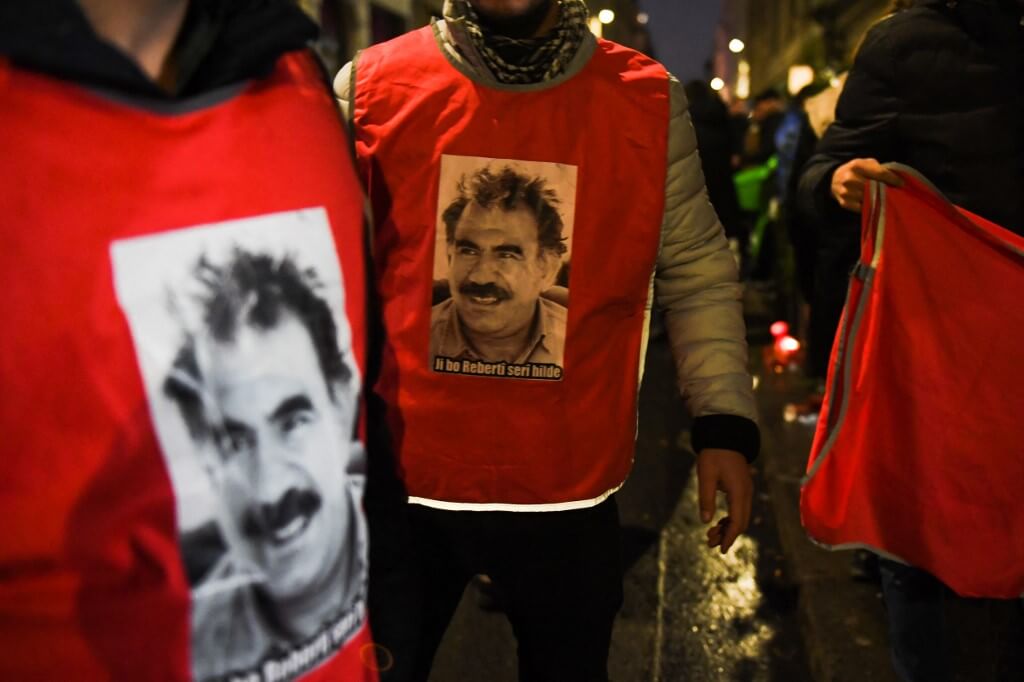The trial of 11 alleged senior members of the Kurdistan Workers’ Party (PKK), accused of extortion, terrorist financing and propaganda for the organization, began in France on Tuesday, Agence France-Presse reported.
Labelled a terrorist organization by Turkey and much of the international community, the PKK has been waging a decades-long armed struggle against Ankara for greater autonomy for Kurds in the Turkish southeast.
None of the 11 suspects — all Turkish citizens aged from 24 to 64 — acknowledges membership in the group, which they say has no presence in France.
But investigators believe that France, alongside EU neighbors, offers a staging ground for PKK activities.
Nine of the 11 suspects charged in the case appeared before the Paris criminal court as the trial got under way.
One of those who failed to show up did so after his family was subjected to pressure in Turkey, his legal team said. The sister of another man had also been arrested in the country.
Organized cells are believed to be active among France’s up to 150,000 Kurdish residents as well as among the 100,000 in the Netherlands and the million-strong community in Germany.
‘Kampanya’
The investigators’ probe began in 2020, when two Kurdish women aged 18 and 19 were reported missing in southeast France.
It soon appeared that they had left for PKK training camps elsewhere in Europe.
Tugging on the thread led investigators to a network based around a Kurdish association in Marseille which they say was collecting a form of community tax known as “kampanya” that funds the PKK.
Testimony and phone tapping revealed harassment and extorsion of diaspora members, they say, as the “tax collectors” set arbitrary contributions for individuals based on their estimated income.
Some Kurds pay the “kampanya” willingly out of “total alignment” with the PKK, investigators say.
But many see it as an “obligation” with which they comply for fear of community ostracism or reprisals.
One witness said he had been threatened with having his legs broken.
Investigators believe around two million euros ($2.2 million) are collected in southeast France each year.
They also probed how young Kurds are “recruited” to the PKK in conditions “close to kidnapping and illegal confinement.”
Anyone who make it through “ideological training” in Europe are sent to military-style camps, many in Iraq, and on to fighting forces loyal to the PKK.
‘Genuine debate’
The trial, which is due to last until April 14, is also expected to focus on the status of the PKK as a terror group, which the investigating magistrate described as “incontestable and not up for discussion.”
But defense lawyer Raphael Kempf said that the “least we can do is ask the question,” adding there was a “genuine debate” on the issue.
The up to 35 million Kurds spread across Iraq, Iran, Syria and Turkey have no state of their own.
In France, three Kurds were shot dead in December at a community center in Paris in a crime investigators have called “racist.”
It recalled the killings 10 years earlier of three PKK activists which have never been solved.
Left-wingers in France have since called for the PKK to be removed from the official list of terrorist organizations.
“The whole debate is to find out whether the PKK is a terrorist organization, and we’ll fight on that ground,” said Martin Mechin, a lawyer for the defendants in Tuesday’s case.


